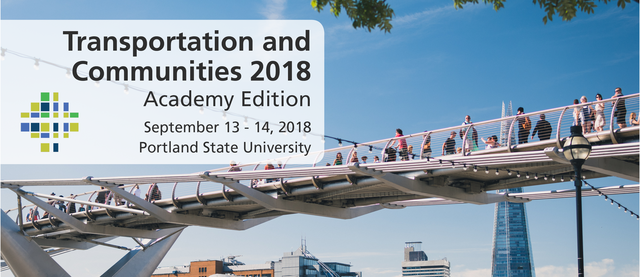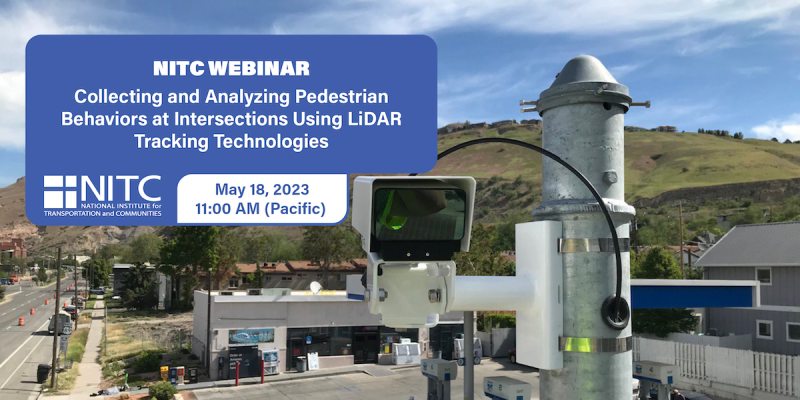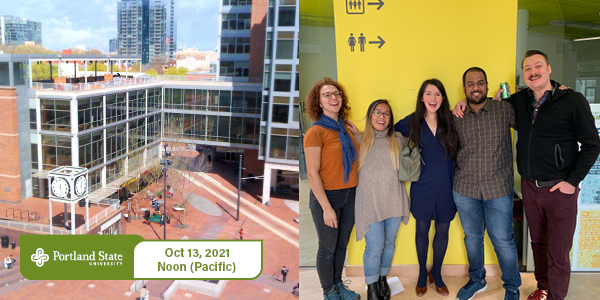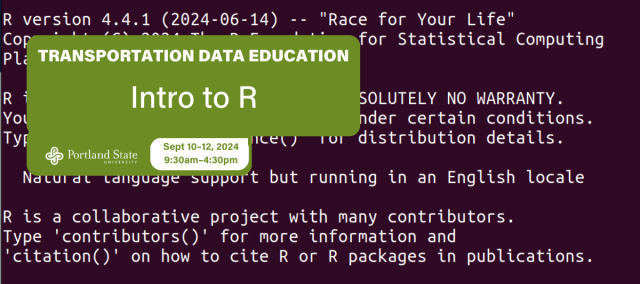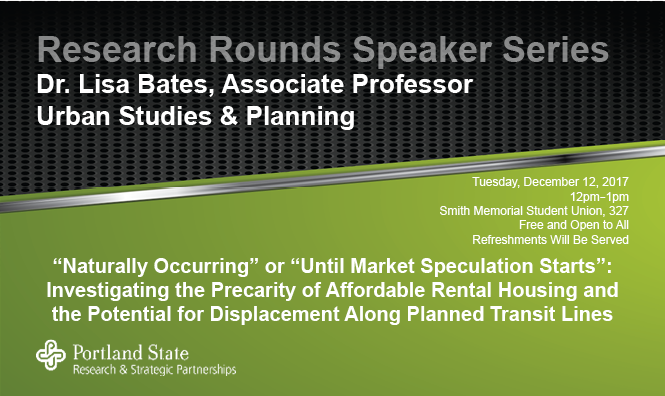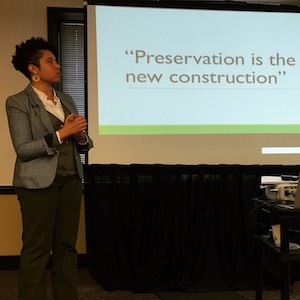In honor of our 10-year anniversary, we’re trying something a little different. Instead of brief sessions that introduce you to a topic– we will be offering fifteen half-day workshops that focus on skill building and providing the tools to apply the latest research to practice. These will be hands-on, immersive learning experiences in a small classroom setting.
REGISTRATION
This event is a la carte, and pricing is per workshop. You may attend as few as one, or as many as four workshops.
- Half-Day Workshop (general admission): $95
- Half-Day Workshop (student rate): $50
THE PROGRAM
⇨SEE THE FULL SCHEDULE AND DETAILS
- Survey Design: Asking the Right Questions
- Bicycle/Pedestrian Focused Signal Timing Strategies: What, When, Where, Why, and How?
- Activating Community Opportunities Using Transportation Organizations as Assets
- Cost Accounting for Program and Budget Planning Today and Tomorrow
- Data Analysis for Smarties Who Forgot What They Learned in College
- What’s New in the HCM 6th Edition?
- Ecological Momentary Assessment Methods with Transportation Disadvantaged Populations
- Calculating...
The video begins at 1:20.
View slides: Foster Presentation (PDF)
View slides: Muhs Presentation (PDF)
View slides: Wagner Presentation (PDF)
Summaries:
Evaluating Driver and Pedestrian Behaviors at Enhanced Multilane Midblock Pedestrian Crossings: Case Study in Portland, Oregon This study examines driver and pedestrian behaviors at two enhanced midblock pedestrian crossings in Portland, Oregon. One crossing is on a five-lane arterial with a posted speed of 35/45 miles-per-hour (MPH) and features six rectangular rapid flash beacon (RRFB) assemblies and a narrow median refuge. The other crossing is on a suburban arterial with four travel lanes and a two-way left-turn lane. The crossing is enhanced with four RRFB assemblies and a median island with a “Z” crossing, or Danish offset, designed to encourage pedestrians to face oncoming traffic before completing the second stage of their crossing. Approximately 62 hours of video have been collected at the two locations. A total of 351 pedestrian crossings are analyzed for driver compliance (yielding) rates, pedestrian...
Read morePRESENTATION ARCHIVE
OVERVIEW
The aim of this research is to investigate pedestrian behavior at signalized intersections using state-of-the-art LIDAR sensing technologies and to use this data, along with vehicular data, to develop a more effective multimodal signal control system.
In the presentation, the presenters will describe a novel method of collecting pedestrian crossing behaviors at signalized intersection, discuss the findings and implications of data analytics, and introduce a novel approach to dynamic flashing yellow arrow mechanisms to reduce the conflict between left turn vehicles and crossing pedestrians.
KEY LEARNING OUTCOMES
- Understand the framework of LiDAR sensing solutions;
- Understand how to collect pedestrian behaviors at intersections;
- Understand how to provide new protection for crossing pedestrians with object-tracking technologies.
THE RESEARCH
This webinar is based on a study funded by the National Institute...
Read moreCalling all Portland State University transportation students: Join us for a Fall 2021 Back-to-School gathering!
After a year of remote learning, we're excited to be back on campus - starting with our annual Fall mixer for transportation students, staff and faculty. Meet us on the rooftop of the Urban Center Building for a meet-and-greet and free lunch. This will be an outdoor event with room to spread out – please wear a mask to keep everyone safe.
If you're interested in a career in transportation – whether you're enrolled in the PSU school of civil engineering, urban studies, or another transportation-adjacent discipline – this event is for you. RSVP here!
STUDENT LEADERSHIP BOARD
The Students in Transportation Engineering and Planning (ITE-STEP) student group at PSU have been helping students interested in mobility connect across disciplines for many years. STEP hosts professional development events, field tours of transportation infrastructure, game nights, and more! Through STEP, transportation students can get connected to funding for attending trainings and conferences. Additionally, they...
Read moreWatch video
View slides: Bell Presentation (PDF)
Summaries:
Identification and Characterization of PM2.5 and VOC Hot Spots on Arterial Corridor by Integrating Probe Vehicle, Traffic, and Land Use Data: The purpose of this study is to explore the use of integrated probe vehicle, traffic and land use data to identify and characterize fine particulate matter (PM2.5) and volatile organic compound (VOC) hot spot locations on urban arterial corridors. An emission hot spot is defined as a fixed location along a corridor in which the mean pollutant concentrations are consistently above the 85th percentile of pollutant concentrations when considering all other locations along the corridor during the same time period. In order to collect data for this study, an electric vehicle was equipped with instruments designed to measure PM2.5 and VOC concentrations. Second-by-second measurements were performed for each pollutant from both the right and left sides of the vehicle. Detailed meteorological, traffic and land use data is also...
Join us for a three day introductory in-person workshop on R
September 10–12, 9:30am - 4:30pm
Tired of finding errors in your spreadsheets that perpetuate and cascade through your work? Still trying to cram “big” data into tiny worksheets? Wish you had an easier way to easily share data and results with others? Want to better manage and maintain your workflow? Always wanted to learn R and version control but never found the time? If any of your answers are yes, then this course is for you!
After several years of hiatus, we are excited to host an "Intro to R" workshop where we will cover the following:
- Coding and scripting basics
- Intro to data wrangling and visualizations
- Version control & best practices
- Where to go for help and how to expand your skills
Prerequisites for the Workshop
Basic knowledge and experience working with quantitative data; experience and skills in a different programming language or data processing and statistical software is helpful but not required.
Course Requirements
Please bring your own laptop and have the following software installed prior to the workshop. If you are using a work machine, please make sure you have reached out to your IT department to have these programs installed:
- R
- ...
This event was hosted by Portland State University's Research and Strategic Partnerships. See the schedule for the monthly Research Rounds Speaker Series here.
REVISIT THE LECTURE: VIDEO AND SLIDES
Miss the lecture or want a look back at the presentation? Watch the video, or view the presentation slides here.
"Naturally Occurring" or "Until Market Speculation Starts":...
Read more
